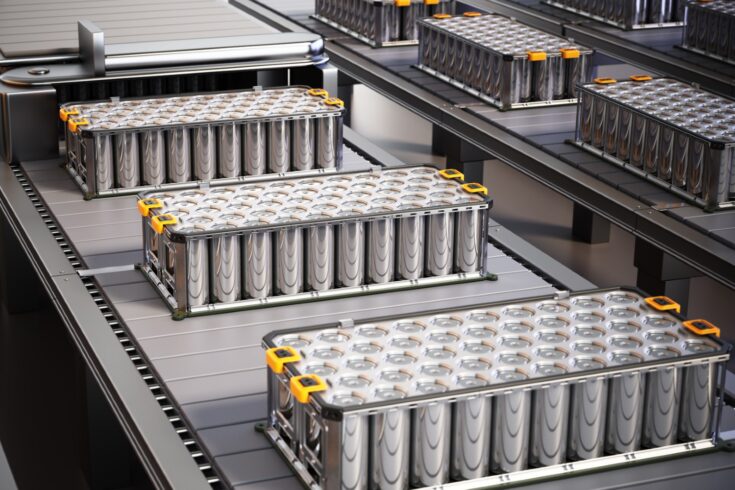Electrification of the UK’s automotive, marine, aerospace, rail and energy storage sectors is expected to drive a significant rise in domestic battery demand by 2035.
This increased demand will need an additional 55 gigawatt hours of batteries and presents a large opportunity to cement battery manufacturing within the UK industrial landscape.
Need for collaboration
A new report, from UK Research and Innovation’s (UKRI) Faraday Battery Challenge, delivered by Innovate UK, emphasises the need for collaboration to:
- meet the need to increase supply
- support the UK’s transition to electrification and a low-carbon future
The report was produced in collaboration with the High Value Manufacturing Catapult, WMG, The University of Warwick.
Green energy superpower by 2030
Ben Walsh at the Faraday Battery Challenge said:
The UK aims to electrify industry and become a green energy superpower by 2030.
However – as this report uncovers – there are significant opportunities to meeting future battery demand.
Meeting this opportunity requires a coordinated, cross-sector approach to scale up domestic manufacturing, drive innovation in battery technology, and address gaps in the supply chain.
UK electrification requires creative ideas
Martin Dowson at WMG, The University of Warwick, said:
Electrification of the UK will require creative ideas, as each sector has its challenges.
Whether it is rail, automotive, marine or aerospace, existing plans are not sufficient to absorb the growth in demand.
What innovations could we see, that help make battery technology manufacturing and scaling up easier to achieve?
That is precisely what this report aims to address.
Bespoke actions for each sector
Actions needed to unlock this opportunity are bespoke to each sector.
Legislative changes will require the automotive sector to electrify rapidly in the 2030s, but costs and battery quality need to be addressed to prevent impact on demand and supply.
The report also revealed that:
- aerospace demand will depend on the viability of the electric vertical take-off and landing industry
- rail demand will increase rapidly by 2035, pressuring manufacturers to produce faster-charging cells with a longer lifespan
- marine demand will be confined to short-range vessels operating within ports
Unlocking wider battery use
Unlocking wider use in batteries will require research into:
Cost
Decreased production costs may help increase supply and spur demand, especially in automotive, marine and rail.
Exploration of low-cost-good-enough alternative battery chemistry could cut costs significantly, especially if battery technology is shared across sectors.
Charging performance
Range anxiety and power capacity of batteries will be a growing concern, but improvements to battery technology could improve performance, boosting demand.
Safety improvements
Mitigating the risk of thermal runaway, which, if left unchecked, could have a measurable impact on demand.
Working together to address challenges
Policymakers and stakeholders will have work together to address these shared challenges, identifying clear sector concerns and finding solutions.
With a collaborative strategy in place, industry will be better placed to help accelerate the UK transition towards electrification and decarbonisation.
Read the report: sector-wide UK battery demand projections to 2035.

